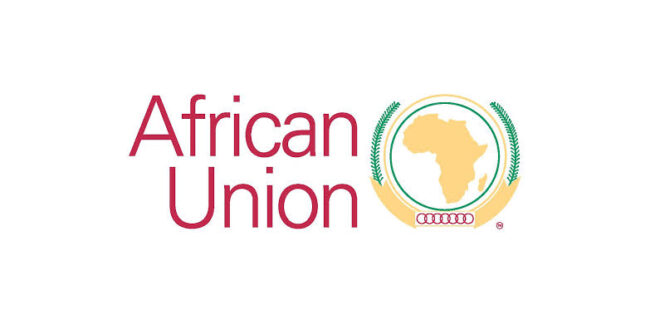
As the African Union (AU) prepares for the February 2025 election to choose the next chairperson of the AU Commission, the African Regional Organisation of the International Trade Union Confederation (ITUC-Africa) has issued a strong message on what the continent needs for sustainable development and prosperity.
In an open letter addressed to AU member states and prospective candidates and copied to Prof. Paul Ngarambe, Burundi, representing the Central Region, H.E Amb. Konjit SineGiorgis, Ethiopia, representing the Eastern Region, H.E Amb. Nozipho Joyce Mxakato-Diseko, South Africa, representing the Southern Region, H.E Amb. Patrick Hayford, Ghana, representing the Western Region, ITUC-Africa’s General Secretary, Akhator Joel Odigie, emphasised the importance of electing a leader who is competent, aligned with the values of social justice, and committed to advancing the rights and welfare of African workers.

“The election of the AU Commission Chairperson presents a unique opportunity for Africa to reaffirm its commitment to Agenda 2063, the continent’s strategic framework for inclusive and sustainable development, and the broader United Nations Sustainable Development Goals (SDGs),” Odigie wrote.
He added that, while progress has been made, significant challenges remain, especially in areas like democracy, economic fairness, and social justice.
ITUC-Africa also noted strides made in promoting trade through initiatives like the African Continental Free Trade Area (AfCFTA) and improvements in labour migration governance. However, it noted that gaps persist, particularly in democracy and economic fairness. Odigie expressed concern about the decline in democratic participation across Africa, which has worsened since the COVID-19 pandemic.
“The rights to freedom of association, expression, and assembly are increasingly being repressed or criminalized,” Odigie stated, urging the AU to champion participatory democracy and protect civil liberties. He added that governance structures across the continent are being captured by narrow interests, eroding the legitimacy of state institutions.
The trade union regional organisation also highlighted the severe economic challenges facing African workers, pointing to inflation and the global cost-of-living crisis, which has pushed millions into poverty. Wage suppression was identified as a key issue, with many workers’ wages stagnating or declining in real terms.
“Instead of being a tool for improving well-being, wages are being used as instruments of suppression,” Odigie said. The organisation called for a renewed focus on fair, liveable wages to combat inequality and lift millions out of poverty.
The letter stressed the need for inclusive growth that benefits all workers, not just a privileged few. “The current economic environment demands urgent action to ensure African economies prioritize the well-being of their workers,” it asserted.
On trade, ITUC-Africa noted the potential of AfCFTA to drive economic integration and growth. With intra-African trade currently accounting for only 16% of the continent’s total trade, there is significant room for improvement. According to the United Nations Economic Commission for Africa (UNECA), AfCFTA could increase intra-African trade by more than 50%, reaching between $150 billion and $250 billion annually by 2030.
The letter urged that labour provisions be integrated into AfCFTA protocols. “African trade unions are ready to collaborate with the AU to ensure AfCFTA delivers on its promises for shared prosperity,” it said.
ITUC-Africa also addressed Africa’s infrastructure gap, which it argued is hindering economic growth and integration. It called for the next AU Chairperson to prioritize infrastructure development, especially in underserved areas, and emphasized the need for implementing the Protocol on Free Movement of Persons to facilitate economic integration.
Also, the letter addressed environmental issues, particularly unregulated mining practices, calling for stricter regulations to ensure Africa’s natural resources are sustainably extracted and benefit local communities.
On youth unemployment, it pointed out that with over 60% of Africa’s population under the age of 25, creating sustainable jobs through industrialization and manufacturing must be a top priority for the AU’s future leadership. “Africa’s share of global manufacturing output remains below 2%, and this must change,” the letter stated, advocating for value addition to Africa’s raw materials as a way to create jobs and reduce dependence on global commodity price fluctuations.
ITUC-Africa also stressed the need to improve women’s participation in the economy and strengthen social protection systems, which are currently inadequate. The letter argued that better social protections, alongside gender equity initiatives, would drive inclusive economic growth across the continent.
Odigie concluded by reiterating ITUC-Africa’s call for the AU to prioritize African workers’ well-being. “Decent work, fair wages, and social protections are essential not just for labour rights, but for achieving inclusive economic growth and building a resilient Africa.
“Our message to the AU and its future leaders is clear: prioritize competence, social justice, and the welfare of African workers. The decisions made in 2025 will shape the future of Africa, and we cannot afford to get it wrong.”
ALSO READ THESE TOP STORIES FROM NIGERIAN TRIBUNE
Senate backs establishment of federal varsity of agriculture, Iragbiji








